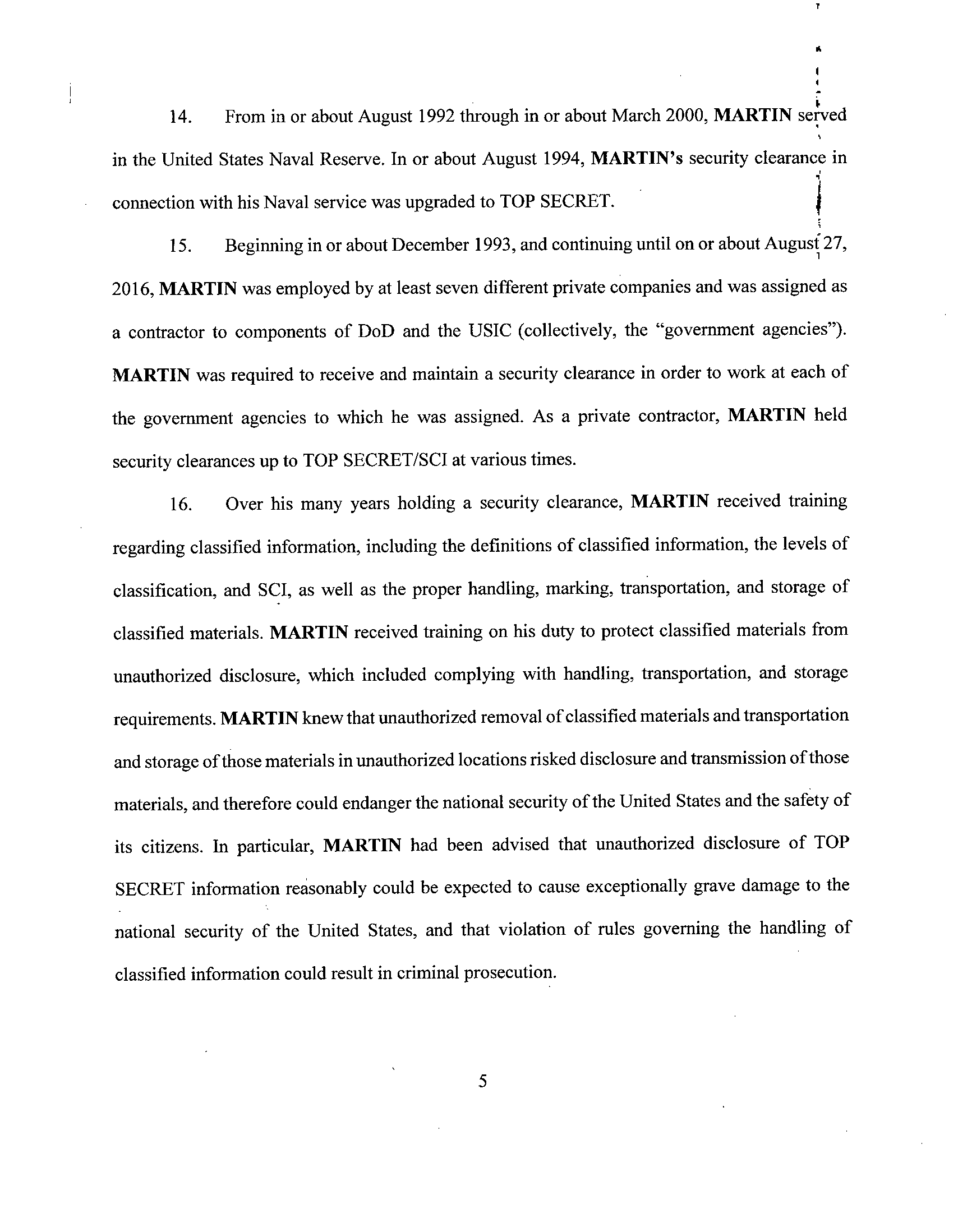U.S. Hits Venezuelan Vice President With ‘Kingpin’ Act Sanctions
- Tareck El Aissami is highest-ranking Venezuelan on list
Nicolas Maduro, Venezuela’s president, right, waves to attendees while accompanied by Tareck El Aissami, Venezuela’s vice president, before the start of his annual address at the Supreme Court in Caracas on Jan. 15, 2017. Photographer: Carlos Becerra/Bloomberg
Bloomberg: The Trump administration imposed sanctions against Venezuelan Vice President Tareck El Aissami, after years of investigation by U.S. authorities into his alleged participation in drug trafficking and money laundering.
The Treasury Department announced the move Monday, placing El Aissami and another Venezuelan on a U.S. list of foreign nationals with suspected ties to drug trafficking. El Aissami has consistently denied all allegations against him. His office declined to comment on the U.S. decision after it was announced.
“He facilitated shipments of narcotics from Venezuela, to include control over planes that leave from a Venezuelan air base, as well as control of drug routes through the ports in Venezuela,” according to a Treasury Department statement. “He also facilitated, coordinated, and protected other narcotics traffickers operating in Venezuela.”
El Aissami is the highest-ranking Venezuelan hit by U.S. sanctions and the most-senior government leader of any country on the so-called Specially Designated Nationals list, according to a U.S. official, who discussed the matter on condition of anonymity. Those listed have their assets blocked and U.S. citizens, institutions and companies are prohibited worldwide from dealing with them, according to the Treasury Department.
The sanctions mark an extraordinary step against the second-in-command of a foreign government and are sure to lead to a further deterioration of U.S. relations with the government of Venezuelan President Nicolas Maduro, who appointed El Aissami as vice president on Jan. 4 amid a deepening economic and humanitarian crisis.
Business Associate
The U.S. also listed Samark Lopez Bello, a Venezuelan citizen with no public government affiliation, who’s considered to be El Aissami’s business associate. According to the official, El Aissami facilitated shipments of more than 1,000 kilograms of drugs on multiple occasions from Venezuela to U.S. and Mexico, and used Lopez Bello to acquire properties on his behalf.
“Lopez Bello is a key frontman for El Aissami and in that capacity launders drug proceeds,” according to the Treasury statement.
Sanctions were also imposed on eight companies based in Venezuela, the British Virgin Islands, Panama and the U.K. The U.S. also froze assets of five U.S.-based companies with real estate holdings in Miami, according to the statement. Together, the actions are designed to freeze tens of millions of dollars in assets, said the U.S. official.
While U.S. officials were gathering evidence under President Barack Obama and prior to El Aissami’s ascent to the vice presidency, action stalled until now. The designations didn’t require President Donald Trump’s personal approval, and Trump has not been involved in the discussions, according to another U.S. official, who also spoke on condition of anonymity.
Any Tool
“It is not a political message, an economic message, it is not a message between governments,” said William R. Brownfield, assistant U.S. secretary of state for international narcotics and law enforcement affairs and a former ambassador to Venezuela between 2004-2007. “It is not even a message of diplomacy. It is a message that says that we will in fact use any tool, any legal and lawful tool in our inventory, to go after those that are engaged in international drug trafficking.”
The measures are being imposed under the the Foreign Narcotics Kingpin Designation Act, which was signed into law by President Bill Clinton in 1999. It has targeted approximately 2,000 individuals since 1999, including eight Venezuelan officials, U.S. officials said.
Brownfield, who has served in his position since 2011, said in his experience the evidence behind the planned designations “is as tight an evidence package as I have seen.”
El Aissami, the son of Syrian and Lebanese immigrants, has long been one of Venezuela’s most controversial and feared politicians. In just over a decade, the 42-year-old climbed government ranks from a student leader in rural Venezuela, to interior minister, to his previous post as the governor of Aragua state.
Decree Powers
In the weeks since becoming vice president, El Aissami received wide-reaching decree powers from Maduro, who tapped him to lead a newly formed “commando unit” against alleged coup plotters and officials suspected of treason. Among the slew of arrests since the unit’s formation is a substitute legislator from a hard-line opposition party and a retired general who, years before, broke ranks with the government.
The sanctions are coming less than a week after a bipartisan group of U.S. lawmakers called for further measures against Maduro’s government. In a Feb. 8 letter to Trump, 34 members of Congress including Senators Ted Cruz and Robert Menendez cited El Aissami’s appointment and urged the U.S. to “take immediate action to sanction regime officials.”
The measures promise to worsen a relationship long strained by mistrust and Venezuelan accusations that Washington supported a failed attempt to overthrow then-President Hugo Chavez in 2002. In the years following the attempted coup, Chavez aggressively criticized U.S. ties to Latin America, helped lead rallies around South America against “Yankee aggression” and nationalized investments by companies including U.S.-based Exxon Mobil Corp.
Oil Prices
“It is obviously a decision for the government of Venezuela and its constitutional authorities to determine what steps they will take and how they will react to this designation,” Brownfield said.
Even under Obama, who generally avoided engaging publicly with Chavez or Maduro, ties between the two nations remained strained. In March 2015, Obama expanded U.S. sanctions against Venezuelan officials and declared worsening relations with the South American nation to be a national emergency as Maduro attempted to stifle dissent.
With the drop in oil prices that began in 2014, Venezuela’s economy collapsed. A nation that just a few decades ago was the wealthiest in Latin America has become synonymous with dysfunction, with consumers forced to wait in hours-long lines for basic goods, including medicine. An informal inflation index compiled by Bloomberg shows that prices are rising at almost 1,200 percent annually, the fastest rate in the world.
Political Network
It is in this context that El Aissami, nicknamed “the narco of Aragua” by Venezuela’s beleaguered opposition, has thrived. Critics allege he has used his vast political network to help turn the country into an international hub for drugs. The State Department, in its 2015 International Narcotics Control Strategy Report, described the Caribbean nation as a “major cocaine transit country,” citing “endemic corruption throughout commerce and government, including law enforcement.”
The vice president’s ties to the nation’s civil registry services before he became interior minister have also fueled accusations by U.S. investigators that he’s aided Middle Eastern extremists by allowing them to create Venezuelan identities and a web of front companies to move money outside the country’s borders.
El Aissami has previously denied any alleged drug ties, saying they are little more than media slander, and has offered to hand himself over to authorities if anyone could produce proof.
El Aissami has been investigated by the Homeland Security Department and Drug Enforcement Administration since at least 2011 for alleged money laundering to the Middle East, specifically Lebanon, according to two people familiar with the probe.
As the number two official in Venezuela, El Aissami would be in line to replace Maduro should he cede to opposition pressure to step aside because of the country’s economic implosion and social unrest. Maduro has so far quashed the opposition’s attempt to hold a referendum on his removal before his term ends in about two years.
***
Hat tip to Infodio for the summary dated 2013.
Hugo Chavez’s soft spot for terrorists wasn’t reserved to Basques only. For there’s extensive documentation (link is external) proving Chavez’s association, and support to Colombia’s narco-terrorists from FARC (link is external). With regards to Middle Eastern terrorists there’s been much in the way of talk but little proof. It has been said that Margarita Island in Venezuela is a Hezbollah hotbed. Others have claimed, without much evidence, that Venezuela has “sent shipments” of Uranium to Iran. However, the U.S. Department of the Treasury announced in June 2012 that it was targetting a money laundering network related to Hezbollah and its operations in Colombia and Venezuela (link is external). And here’s where things get interesting.
Tareck Zaidan El Aissami Maddah (DOB 12 Nov. 1974, ID. 12.354.211) is the current chavista Governor of Aragua state in Venezuela. He is one of five children of Zaidan Amin El Aissami El Musfi and May Maddah de El Aissami, a Muslim couple of Lebanese origin. El Aissami (TEAM) has had a meteoric rise within chavismo, owing to his excellent relations with Adan Chavez, brother and mentor of the late Hugo, whom he met while reading law in Universidad de los Andes. Despite his young age, El Aissami has been appointed to sensitive roles, such as Head of ONIDEX: Venezuela’s equivalent to the Home Office, responsible for identification and immigration.
The most interesting aspect of El Aissami’s operation however, is not money laundering by his proxies, but rather abuse of his station at ONIDEX to give Venezuelan IDs to a number of internationally wanted criminals / terrorists. The news from OFAC linked above reveal that Hezbollah operatives in South America got Venezuelan IDs under El Aissami’s “watch”. While in charge, ONIDEX created new identities for a number of people. Intelligence reports sent to us claim that as many as 173 individuals believed to be collaborating with terrorism, drug trafficking and money laundering were either naturalised, or got Venezuelan visas and IDs using fake names. Abbas Hussein HARB, for instance, identified by OFAC as part of a money laundering network related to Hezbollah and Ayman Saied JOUMAA, has two Venezuelan IDs (21495203 and 26405022). As of this writing both are valid. Kassem Mohamad SALEH, also designated as Hezbollah collaborator, has a valid Venezuelan ID (22075502), as shown in electoral records. Read the full summary here, excellent work.



 Now the private and free enterprise system and corporations should have success. But are these companies standing on their own or just part of another circle jerk for political favors? Hah….rhetorical question until you see who is participating. How about Google….the most profitable and successful tech company out there. Well yes but… Besides Intel, Google is the top tech company
Now the private and free enterprise system and corporations should have success. But are these companies standing on their own or just part of another circle jerk for political favors? Hah….rhetorical question until you see who is participating. How about Google….the most profitable and successful tech company out there. Well yes but… Besides Intel, Google is the top tech company 

 NBC
NBC According to an
According to an 